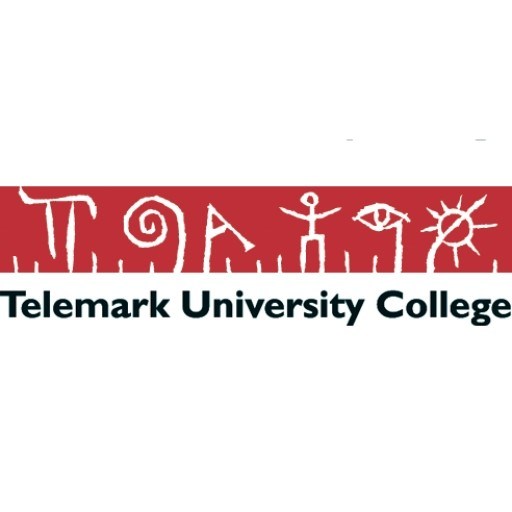Photos of university / #ntnu
Natural Gas Technology at the Norwegian University of Science and Technology (NTNU) is a comprehensive program designed to equip students with the specialized knowledge and practical skills necessary to excel in the energy sector, particularly focusing on the extraction, processing, and transportation of natural gas. This program offers a multidisciplinary approach, integrating engineering, technology, and environmental considerations to prepare graduates for the evolving challenges of the global energy market. Students will gain a thorough understanding of the physical and chemical properties of natural gas, the technologies used in exploration and production, and the safety protocols essential for efficient operation within this industry. The curriculum emphasizes the importance of sustainable and environmentally responsible practices, aligning with Norway’s leadership in clean energy initiatives. Throughout the program, students have the opportunity to engage in laboratory work, simulations, and field projects, providing hands-on experience that bridges theoretical knowledge with practical application. In addition, collaboration with industry partners and participation in research projects enable students to stay at the forefront of technological advancements and industry standards. Graduates of the Natural Gas Technology program are well-prepared for careers in upstream and downstream gas industries, offshore operations, environmental management, and energy consulting. They will have the skills necessary to contribute to the responsible development and utilization of natural gas resources, ensuring energy security while minimizing environmental impact. The program also fosters critical thinking, problem-solving abilities, and teamwork skills essential for leadership roles in this sector. With Norway’s strategic position as a leader in natural gas production and export, graduates from NTNU will be highly sought after both nationally and internationally, capable of making meaningful contributions to the global energy industry.
The Bachelor’s degree program in Natural Gas Technology at the Norwegian University of Science and Technology (NTNU) offers students a comprehensive education in the science, technology, and industry practices related to natural gas extraction, processing, and utilization. The program is designed to equip students with a strong foundation in engineering principles, physics, chemistry, and geology, all tailored toward the energy sector, particularly focusing on natural gas as a vital energy resource. Throughout the program, students will learn about the exploration and development of natural gas fields, the technical processes involved in extracting natural gas from underground reservoirs, and the methods used to transport and store it efficiently and safely. Emphasis is also placed on environmental and safety considerations, ensuring that future engineers are prepared to work responsibly within the industry’s regulations and standards.
Courses cover a variety of core topics such as thermodynamics, fluid mechanics, reservoir engineering, and process design, providing students with practical knowledge applicable to real-world challenges in the natural gas industry. The curriculum also includes specialized modules on offshore technology, pipeline engineering, and natural gas liquefaction, reflecting the industry’s global scope and technological complexity. Students gain hands-on experience through laboratory work, simulation exercises, and internships with industry partners, fostering practical skills and industry connections. The program encourages innovation and sustainable development, preparing students to contribute to the transition toward greener energy solutions and responsible resource management.
Graduates of the Natural Gas Technology program will be well-equipped to pursue careers in natural gas extraction companies, energy consultancies, engineering firms, and governmental agencies overseeing natural resource management. They will have the knowledge and skills to develop new extraction techniques, optimize production processes, and implement modern solutions for natural gas infrastructure. The program also provides a solid foundation for those wishing to continue their studies through master’s programs or research opportunities in energy technology, environmental engineering, or related fields. Overall, the program aims to produce highly qualified engineers who can meet the demands of a rapidly evolving energy industry, emphasizing innovative, sustainable, and safe natural gas operations.
The financing of the Natural Gas Technology master's degree program at the Norwegian University of Science and Technology (NTNU) is primarily covered through a combination of government funding, tuition fees, and scholarships. Norwegian students benefit from full government subsidies, which significantly reduce the cost of higher education, and international students are required to pay tuition fees. The Norwegian state provides financial support to students through a range of loan and grant schemes administered by the Norwegian State Educational Loan Fund (Lånekassen). These schemes are available to both Norwegian and certain international students under specific conditions, helping to cover living expenses and tuition fees.
EU/EEA students can typically access the same financial aid opportunities as Norwegian students, although the availability may vary depending on agreements between Norway and other countries. International students from outside the EEA are generally required to pay tuition fees, which for master's programmes at NTNU can range from approximately 80,000 to 140,000 Norwegian kroner per year, depending on the program. To assist in financing their studies, international students are encouraged to seek external scholarships and grants, which are offered by various organizations, including the Norwegian government, private foundations, and international bodies.
NTNU offers several scholarship opportunities specifically targeted at international students, such as the NTNU Talent Scholarships and the Norwegian Government Scholarships. These scholarships can cover partial or full tuition fees and sometimes include a living allowance. Additionally, students are encouraged to explore external funding sources from their home countries or international organizations, which can support their studies abroad.
Students enrolled in the Natural Gas Technology program are also advised to budget for living costs, including accommodation, food, transportation, and study materials. The cost of living in Norway is relatively high, but this is offset by the quality of education and living standards. Many students opt for part-time work opportunities, which are permitted for international students under certain regulations, to support their financial needs during their studies.
Overall, the financing of the program is designed to make higher education accessible through a combination of public funding, scholarships, and student loans, with additional possibilities for external funding. Students are encouraged to plan their finances carefully and apply early for relevant scholarships and loans to ensure they can complete their studies without undue financial burden.
The master's degree programme in Natural Gas Technology at the Norwegian University of Science and Technology (NTNU) is a specialized program designed to prepare students for careers in the natural gas industry, focusing on the technical, operational, and managerial aspects of natural gas extraction, processing, and transportation. The curriculum emphasizes a solid foundation in engineering principles, along with advanced knowledge of gas production, pipeline technology, and gas processing techniques. Students gain hands-on experience through laboratory work, simulation exercises, and field visits, enabling them to understand real-world challenges in natural gas engineering. The programme also covers topics such as safety management, environmental considerations, and sustainable development within the natural gas sector, aligning with industry standards and regulations. Courses are taught by experienced faculty members and industry experts, providing students with both theoretical knowledge and practical skills. The programme aims to develop problem-solving abilities, innovative thinking, and technical competence necessary to operate and optimize natural gas facilities efficiently and safely. Graduates of the program are prepared for employment in various sectors of the energy industry, including natural gas production companies, pipeline operators, and consulting firms. The programme is typically offered in English and attracts international students, fostering a multicultural learning environment. Students have access to state-of-the-art laboratories, simulation tools, and research facilities, supporting their academic and professional development. Upon completion, graduates often proceed to roles requiring expertise in natural gas engineering, project management, and technical consulting, contributing to the sustainable development of the global natural gas industry. The programme’s structure includes coursework, independent research, and a master's thesis, providing a comprehensive educational experience. Collaboration opportunities with industry partners and participation in internships are also integral parts of the curriculum, enhancing employability and practical understanding of industry demands.



